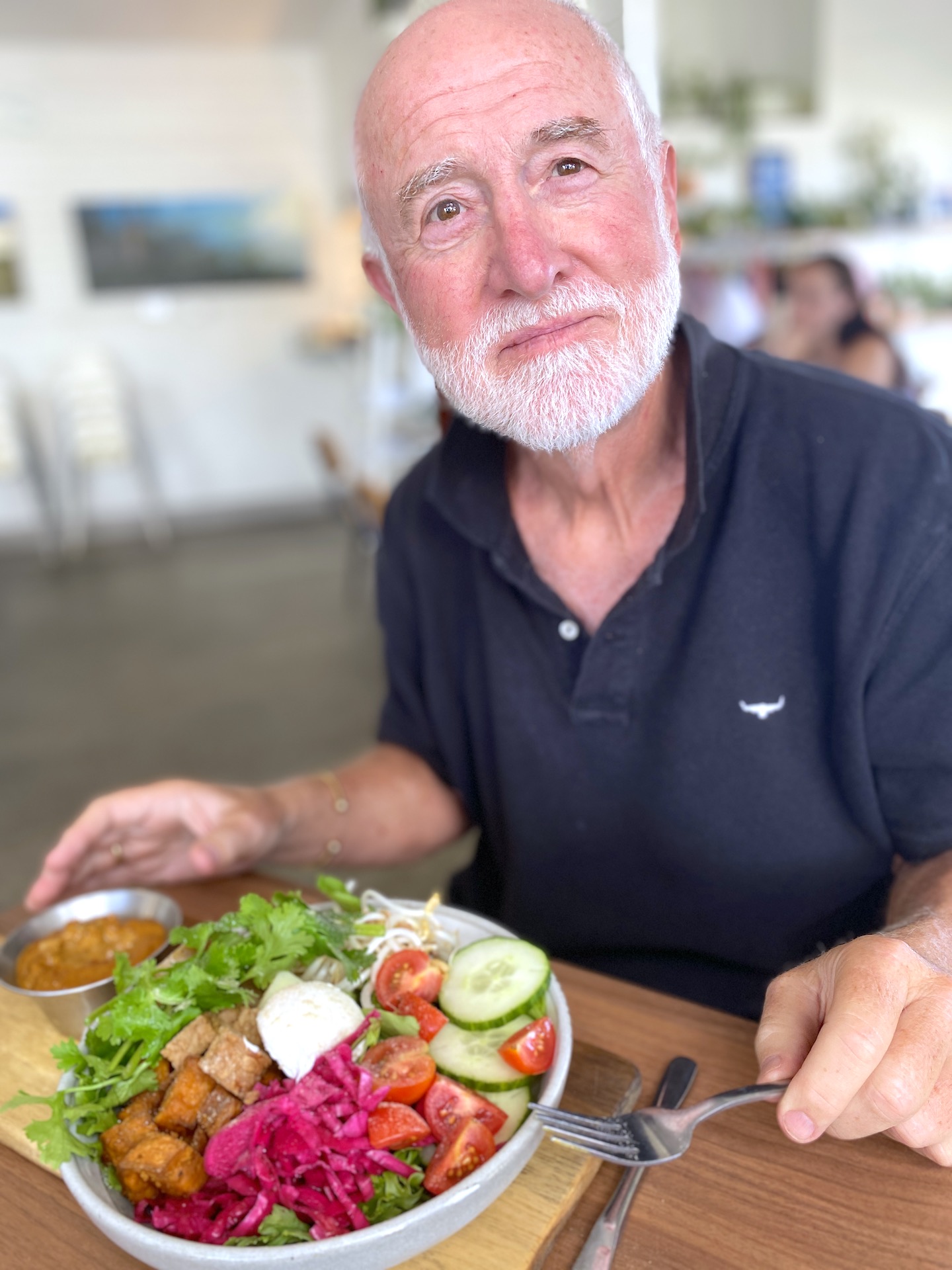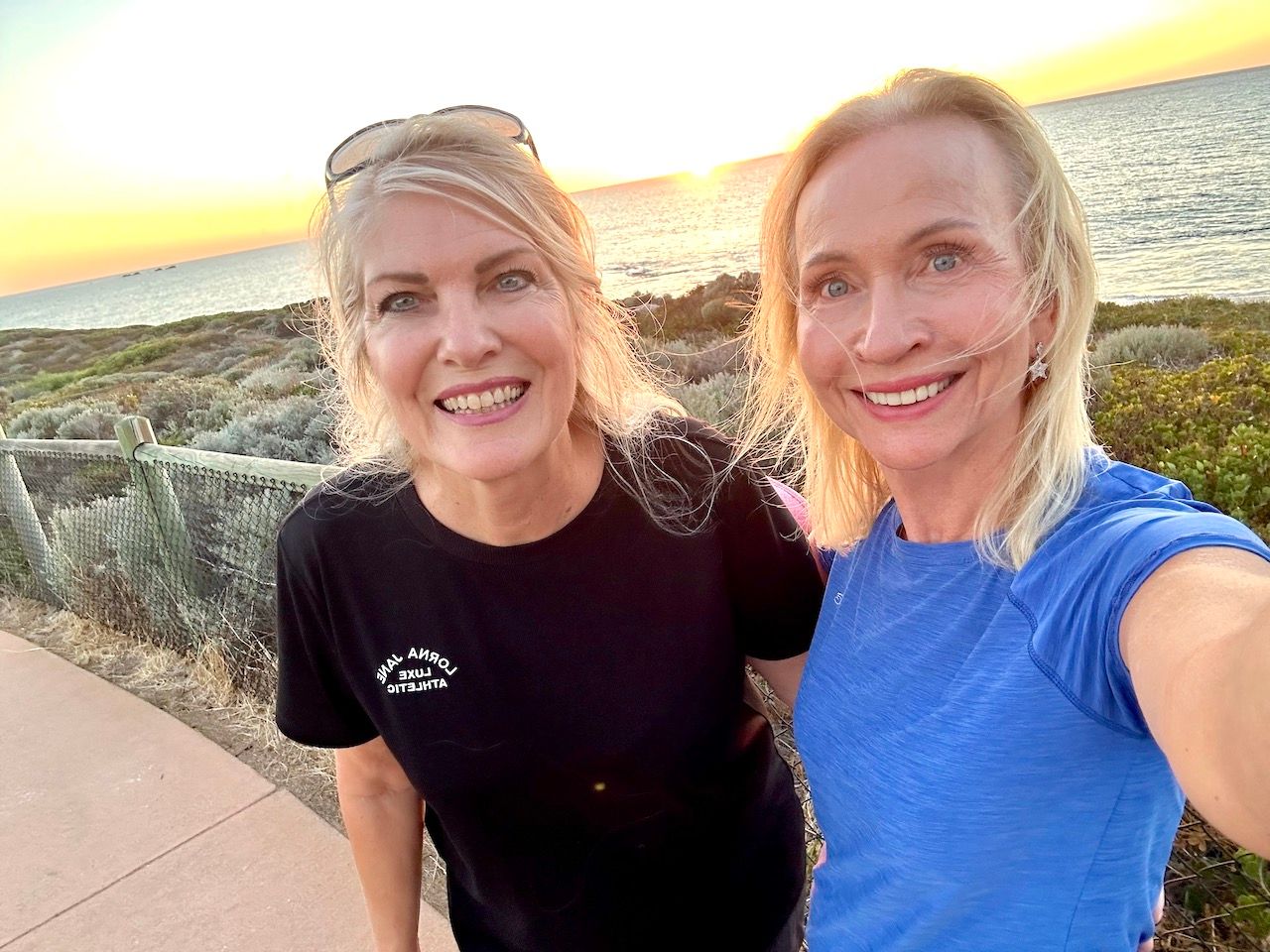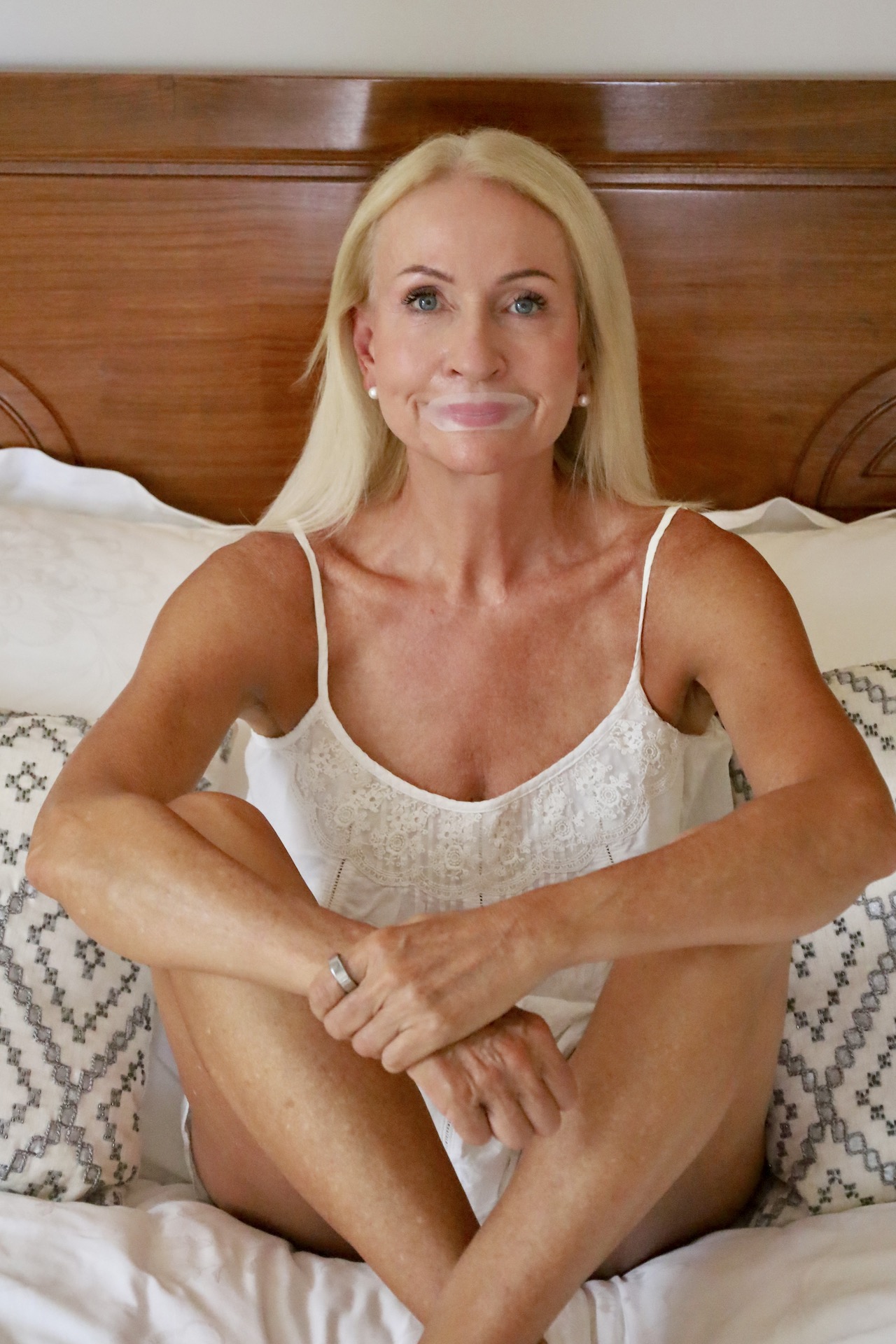Orthorexia – or orthorexia nervosa – is a newish and very first-world condition. And no orthorexic is likely to admit to being one, says VERNE MAREE.
I know a bit about body dysmorphia and disordered eating, so when Roy says things like: “I’ll have just one bite of cake,” or “Let’s share that banana”, my spidey sense is alerted.
You’ll remember that Roy lost 35kg on my Low Carb, No Crap® eating plan; and it’s great that he’s determined to keep it off. But when he asks for three chips with his fish, is he going too far?

- As a monthly-or-so treat, we get takeaway from Rocks Fish and Chips, Quinns Rock. It’s a ten-minute drive from home, so the beer-battered barramundi and chips are still piping hot by the time I tip them out of the layers of paper on to preheated plates. And Roy will, literally, have just three or four chips from the huge pile they call a single serving.

Ortho-what?
You know about anorexia nervosa, right? Well, its third cousin twice removed, orthorexia nervosa, is a full-blown eating disorder that can result from an extreme obsession with healthy eating. Based on two Greek words, orthos (correct) and orexis (appetite), the term was coined by American physician Dr Steven Bratman in 1997 and entered mainstream media five or six years ago.
Driven by a desire for dietary perfectionism, orthorexia has been defined as an obsession with eating only the purest foods of the highest quality.

What’s the best way to eat?
I’ve been able to answer that question with complete confidence at any time over the past 30 to 40 years. Never mind that my answer would have been very different depending on the timeframe.
Like everyone else in the fat-fearing 80s and 90s, I, too, snacked on popcorn, skinned my chicken breasts and used 99% fat-free salad dressing. Remember? No wonder we were constantly hungry! (Fortunately, beer and cigarettes were completely fat-free, as they are now. They may have saved my sanity.)
(Click here for my thoughts on the delights of fat, and how much fat we really need.)

Nowadays, with Roy having had such success with my own Low Carb, No Crap® plan, it’s tempting to believe that that’s the very best way to eat. But having been wrong before, who’s to say we aren’t wrong now? it’s difficult to be absolutely sure. (And for someone like me who really, really likes to be right, that can be a worry.)
From carnivores to vegans
On the one hand, clever people like my favourite carnivore, Paul Saladino, passionately extol the virtues of a nose-to-tail animal-based diet. Eschewing (i.e. not chewing) plants solved all his health problems, and he’s convinced it will do the same for others.
On the other end of the spectrum are die-hard vegans like ***. (*** You’ll have to insert your own favourite vegan here; I don’t have one.)

In the middle you’ll find everything: from the amazingly (conveniently?) vague Mediterranean diet to paleo (no dairy, legumes or grains) and auto-immune paleo or AIP (a stricter paleo that bans eggs, nuts, seeds and nightshade veggies); the low-FODMAP (no fermentable sugars, it’s very complicated); and lectin-free diets that sensibly take into account the fact that plants are murderous wee beasties that want to kill us.

Eating healthily
“Eating healthily” has meant different things to different people at different times and in different places. A healthy appetite has never meant a preference for lentils, muesli and acaí berries; instead, it implies that you tuck away rather too many of the groceries. And when friends or colleagues from the Indian community in my hometown, Durban, remarked that you were looking “healthy”, they simply meant you looked fat.
So much for semantics. The real problem is that we’re confronted with so much conflicting dietary advice, often backed by seemingly plausible science, that it’s difficult to know the truth. It doesn’t help that we’re systematically lied to by corporate interests (like Big Pharma and Big Food) masquerading as government guidelines, which generally succeed in muddying the nutritional waters with their bought-and-paid-for fake research. (Enough… that’s a whole other blog post, if not book!)
Which path to choose, then? And how far along it to go?
Say you’re already preparing your own whole-food organic meals from scratch; should you righteously cut out gluten, dairy, carbs, meat, fat, salt? Is vegan the purer way to go? Raw vegan? Fruitarian? Breatharian? How about a 40-day water-only fast? Enter the new problem child of nutrition: orthorexia nervosa.

It can be difficult to distinguish between orthorexia and a normal preoccupation with healthy eating. I’m a case in point: looking back on some of my own experiments with water-fasting, for example, some would say I’ve crossed that particular line on occasion. That said, fasting has become a lot more mainstream since I first tried it ten or 15 years ago. (Click here for my recent post on intermittent fasting and time-restricted feeding.)
What’s the benchmark, then? Here’s a useful rule of thumb: If your super-healthy or “clean” diet causes you anxiety or interferes with your daily life, including your social life, chances are you’re orthorexic.
An example
Here’s an example from a UK Sunday Times Magazine article on the subject. Laura Wilson (28) embarked on a high-protein diet to lose weight. Encouraged by the praise and compliments and inspired by the new blogs on the subject, she entered the world of “clean eating”.
Refined sugar and gluten were the first to go – so far, so good. Then Laura became vegetarian, then vegan, then she excluded fruit from her diet – “too much sugar”. Niche superfoods became her staples: maca root powder, cacao nibs, spirulina and chia seeds. She exercised six times a week; she avoided social get-togethers that might tempt her off the path of righteousness.

No wonder she shed every scrap of fat from her frame, her periods stopped and she was cold all the time.
Diagnosis and treatment
Though its roots may be similar to those of the most famous two eating disorders, anorexia nervosa (starving) and bulimia (bingeing and purging) – being based on a desire for control – orthorexics may be harder to pin down and treat.
For starters, the behaviour of anorexics and bulimics is obviously self-destructive: they’re either refusing to eat, or they’re gorging and vomiting. The orthorexic, however, will deny that it’s really about losing weight. And her insistence that it’s all about living healthily makes it difficult to challenge her behaviour.
A pinch of salt
(Himalayan and pink, and preferably with a margarita.) After scrolling through dozens of expert opinions on the dangers of orthorexia, the borderline hypochondriac in me was close to diagnosing a new branch of the condition: serial intermittent orthorexia, punctuated by deep-fried battered fish and chip blowouts and gin-and-tonic sessions.

So I breathed a sigh of relief when I found social traumologist Anngwyn St Just’s entertaining and intelligent blog. In an article titled “Orthorexia: Really?” she dismissed the message that eating right is now wrong, calling it part of “a rising tide of Orwellian dis-info” in a dystopic trend.
It’s just the latest in the American Psychiatric Association’s “growing lexicon of dubious diagnoses”, she said. Here’s her amusing list of a few others that are already eligible for medication and other pricy treatment:
- Disruptive Mood Disorder (temper tantrums)

- Oppositional Defiant Disorder (two-year-olds, adolescence, social activism, political dissidents, alternative media, most cats)
-
Major Depressive Disorder (normal grief, Basset hounds)

- Adult Attention Deficit Disorder (boredom)
-
Minor Neurocognitive Disorder (senior moments), and
-
General Anxiety Disorder (everyday worries).
“Fortunes will soon be made,” she wrote, “with the advent of state-mandated compulsory vaccinations for these hypothetical, and other real or projected conditions.”
Parting Shot
So we can go back to our maca powder, goji berries, juice-fasting, meat-free Mondays, homemade almond milk or whatever floats our nutritional boat – and continue to feel good about our efforts.
And Roy, if it means having just three chips with your fish – or none – that’s OK too. At least I know you’re not sick!

(Adapted from one of my regular health columns in Expat Living, Singapore)






